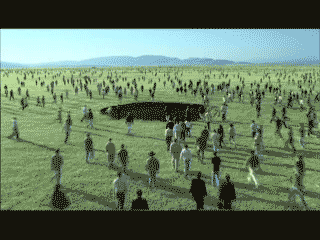

| Many people have misinterpreted the Bible, claiming it as the basis for their foolish acts and destructive policies. The fault is ours, not the Bible's. | The fact that millions of people may have misunderstood the Bible and believed a foolish thing does not mean we should stop depending on the Bible as the foundation of our thinking. |
| The reflection and experience of many years have led me to consider the holy writings not only as the most authentic and instructive in themselves, but as the clue to all other history. They tell us what man is, and they alone tell us why he is what he is: a contradictory creature that seeing and approving of what is good, pursues and performs what is evil. All of private and of public life is there displayed.... From the same pure fountain of wisdom we learn that vice destroys freedom; that arbitrary power is founded on public immorality.[1] GOUVERNEUR MORRIS, PENMAN AND SIGNER OF THE CONSTITUTION |
||
| [The Bible] is a book worth more than all the other books that were ever printed.[2] PATRICK HENRY |
[T]o the free and universal reading of the Bible in that age, men were much indebted for right views of civil liberty. The Bible is . . . a book which teaches man his own individual responsibility, his own dignity, and his equality with his fellow man.[3] DANIEL WEBSTER |
|
| The Bible is the best of all books, for it is the word of God and teaches us the way to be happy in this world and in the next Continue therefore to read it and to regulate your life by its precepts.[4] JOHN JAY, ORIGINAL CHIEF-JUSTICE OF THE U S. SUPREME COURT |
||
| One of the beautiful boasts of our municipal jurisprudence is that Christianity is a part of the Common Law. . . . There never has been a period in which the Common Law did not recognize Christianity as lying at its foundations. . . . I verily believe Christianity necessary to the support of civil society.[5] JOSEPH STORY, U S. SUPREME COURT JUSTICE; FATHER OF AMERICAN JURISPRUDENCE |
We have been assured, Sir, in the Sacred Writings that except the Lord build the house, they labor in vain that build it I firmly believe this; and I also believe that without His concurring aid, we shall succeed in this political building no better than the builders of Babel.[6] BENJAMIN FRANKLIN |
|
| [T]he Declaration of Independence first organized the social compact on the foundation of the Redeemer's mission upon earth. [and] laid the cornerstone of human government upon the first precepts of Christianity.[7] JOHN QUINCY ADAMS |
1. Collections of the New York Historical Society for the Year 1821 (New York: E. Bliss and E. White, 1821), p. 30, from "An Inaugural Discourse Delivered Before the New York Historical Society by the Honorable Gouverneur Morris on September 4, 1816."
2. William Wirt, Sketches of the Life and Character of Patrick Henry (Philadelphia: James Webster, 1818), p. 402. See also George Morgan, Patrick Henry (Philadelphia & London: J. B. Lippincott Company, 1929), p. 403.
3. Daniel Webster, Address Delivered at Bunker Hill, June 17, 1843, on the Completion of the Monument (Boston: T. R. Marvin, 1843), p. 31. See also W. P. Strickland, History of the American Bible Society from its Organization to the Present Time (New York: Harper and Brothers, 1849), p. 18.
4. John Jay, John Jay: The Winning of the Peace. Unpublished Papers 1780-1784, Richard B. Morris, editor (New York: Harper & Row Publishers, 1980), Vol. II, p. 709, to Peter Augustus Jay on April 8, 1784.
5. Joseph Story, Life and Letters of Joseph Story, William W. Story, editor (Boston: Charles C. Little and James Brown, 1851), Vol. II, pp. 8, 92.
6. Address to the Constitutional Convention, recorded in James Madison, The Papers of James Madison, Henry D. Gilpin, editor (Washington: Langtree & O'Sullivan, 1840), Vol. II, p. 985, June 28, 1787.
7. John Quincy Adams, An Oration Delivered Before the Inhabitants of the Town of Newburyport at Their Request on the Sixty-First Anniversary of the Declaration of Independence, July 4, 1837 (Newburyport: Charles Whipple, 1837), pp. 5-6.
Mass Popular Delusion Archive.org, 2008